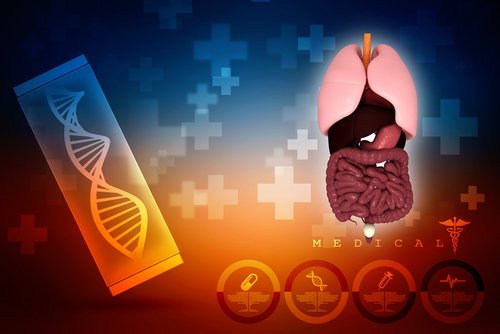Cerdelga Improves Gastrointestinal Symptoms in GD Patient, Korean Case Report Shows

Cerdelga (eliglustat tartrate) can be effective in treating gastrointestinal lesions in patients with Gaucher disease (GD), according to a clinical case published in BMC Medical Genetics.
This finding supports the use of Cerdelga to treat patients who receive standard care with enzyme replacement therapy (ERT) but still present treatment-resistant symptoms.
GD patients often have low levels of red blood cells and platelets, enlarged spleens and livers, skeletal deformation and neurological impairment. The use of ERT such as Cerezyme (imiglucerase) and VPRIV (velaglucerase alfa) effectively overcome these symptoms.
Despite ERT’s benefits, GD can lead to secondary illnesses, some of which involve the lungs, lymph nodes, or gastrointestinal (GI) tract. Usually these co-morbidities do not respond to ERT.
In the study, “Case report of unexpected gastrointestinal involvement in type 1 Gaucher disease: comparison of eliglustat tartrate treatment and enzyme replacement therapy,” Korean researchers described the case of identical twin siblings with GD who had received ERT for nine years but still suffered from GI problems, with Gaucher cell infiltration in the walls of the GI tract.
Although ERT helped control GD progression in both brothers, their GI symptoms did not seem to respond to therapy. Since oral medication could reach and penetrate the GI walls more efficiently than ERT, the clinical team decided to switch the treatment to substrate reduction therapy (SRT).
Physicians tried Zavesca (miglustat) — the first drug introduced as an SRT — in one of the patients, but it led to severe GI-associated adverse effects, so the therapy was stopped. With the support of Sanofi Genzyme, the patient then started SRT with Cerdelga. He was followed every six months during the SRT, with evaluation of GI tract status.
After one year on Cerdelga, the patient showed overall improvement of his GI symptoms and recovered his body weight, with no adverse events. His twin brother, however, did not want to switch to SRT and kept his regular ERT regimen with Cerezyme. Despite improving, he still had persistent GI lesions that weren’t responding to therapy.
“We found that switching to eliglustat tartrate to reduce the mucosal involvement of the Gaucher cells was effective, and no adverse events were observed,” the authors wrote. “Eliglustat tartrate may not only be a new alternative treatment for ERT, but also an effective therapy for patients especially resistant to ERT.”



